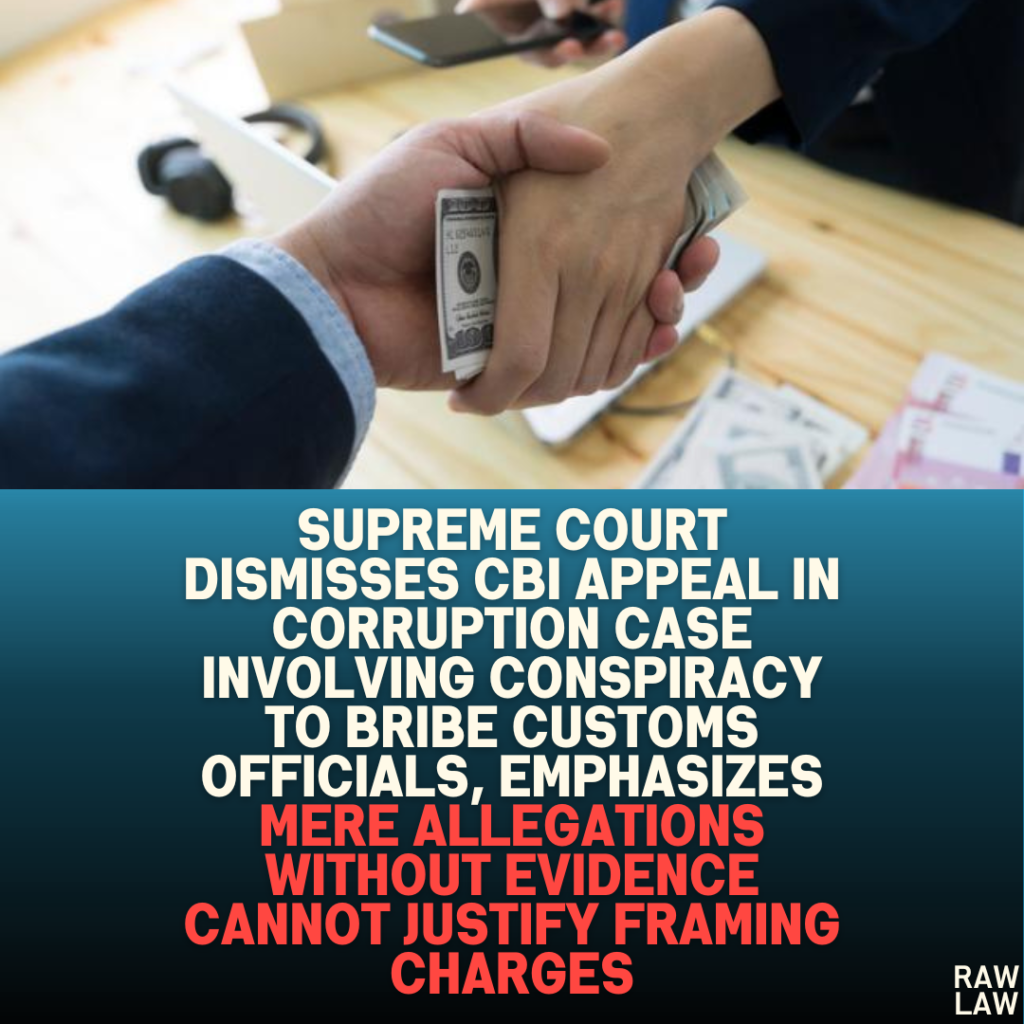Court’s Decision:
The Supreme Court dismissed the appeal filed by the Central Bureau of Investigation (CBI) challenging the discharge of Dilip Mulani, who was accused in a corruption case involving illegal gratification and conspiracy under the Prevention of Corruption Act, 1988. The Court upheld the Bombay High Court’s decision to discharge Mulani, ruling that the evidence did not establish a prima facie case of his involvement in the alleged conspiracy.
Facts of the Case:
Dilip Mulani, along with other accused, was charged with conspiracy to bribe customs officials to expedite refund claims for the clients of his company. The case involved illegal payments totaling Rs. 58,000, Rs. 3,50,000, and Rs. 1,50,000 made to customs officials to clear refund claims. The CBI filed a chargesheet implicating Mulani, alleging that he was involved in arranging the illegal payments. The Special Judge rejected his discharge application, but the High Court later reversed this decision, discharging Mulani.
Issues:
The key issue was whether there was sufficient evidence in the chargesheet to establish a prima facie case of Mulani’s involvement in the conspiracy to bribe customs officials.
CBI’s Arguments:
The CBI argued that Mulani, as the Managing Director of the company, was involved in the conspiracy to make illegal payments. The agency emphasized that Mulani’s name appeared in diary entries of co-accused individuals and that this constituted evidence of his involvement in the conspiracy.
Respondent’s Arguments:
Mulani’s defense argued that there was no direct evidence linking him to the bribe payments, and that the diary entries referred to another individual, Dushyant Mulani, not him. The defense highlighted that the letters “DM” in the diary entries referred to Dushyant Mulani, a co-accused, and not Dilip Mulani.
Court’s Reasoning:
The Supreme Court examined the chargesheet and the material on record, including the diary entries. The Court observed that while Dilip Mulani’s name appeared in the diary, the key entries involving illegal payments were attributed to “DM,” which the CBI itself admitted referred to Dushyant Mulani, not the respondent. The Court also noted that the chargesheet did not contain sufficient details of Mulani’s involvement in the conspiracy beyond vague allegations.
The Court emphasized that mere allegations without corroborating evidence could not justify framing charges. As there was no substantial evidence tying Dilip Mulani to the alleged conspiracy, the Court upheld the High Court’s order of discharge.
Conclusion:
The Supreme Court dismissed the CBI’s appeal, affirming that no prima facie case was made against Dilip Mulani. The Court clarified that the findings were limited to Mulani’s role and did not extend to the other accused involved in the case.
Implications:
This ruling reinforces the importance of concrete evidence in criminal prosecutions, especially in cases involving conspiracy. Mere suspicion or indirect references in documents cannot form the basis for framing charges without substantial proof of involvement.
